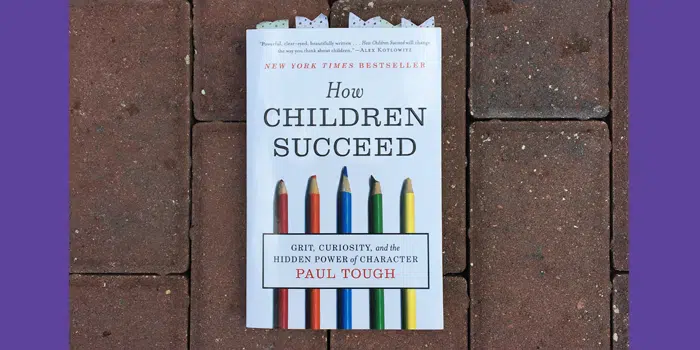“How do our experiences in childhood make us the adults we become?”
How Children Succeed is Paul Tough’s insightful & highly readable compilation of decades of research on what it is that enables some children to thrive into adulthood while others fall behind (both in economically advantaged and disadvantaged circumstances). He argues that toxic stress and instability on one end of the spectrum vs. overprotectiveness and lack of opportunities to overcome adversity on the opposite can lead to a deficit in developing the character traits “especially likely to predict life satisfaction and high achievement.” As James Heckman and several other researchers have noted, certain, non-cognitive skills or character traits, such as “grit, self-control, zest, social intelligence, gratitude, optimism and curiosity,” have an even greater impact on student achievement than academic skills.
This book so clearly lays out how the cycle of poverty exacerbates existing disadvantages for children and creates more barriers to success in school and society. — Children who experience ongoing early trauma and stress that is not met with a nurturing or calming response by a caregiver, inhibits children’s early abilities to learn to adapt and respond to stress in a healthy way. “The part of the brain most affected by early stress is the prefrontal cortex.” Which happens to be the area in the brain that controls executive function and self regulation. Children who grow up in overly stressful environments “find it harder to concentrate, harder to sit still, harder to rebound from disappointments, and harder to follow directions. And that has a direct effect on their performance in school. When you’re overwhelmed by uncontrollable impulses and distracted by negative feelings, it’s hard to learn the alphabet.”
Parents can help their infants deal with stress by modeling calm response and comforting them after a tantrum or bad scare. These things and establishing a healthy relationship with their child builds secure attachment.
Tough states, “The effect of good parenting is not just emotional or psychological, the neuroscientists say; it is biochemical.”
However, this comforting response can swing too far the other direction. Once children have moved past the infancy stage, it is important for them to experience obstacles and even failures in order to learn how to overcome adversity and develop character strengths.
For many of us parents, this can be a challenging thing. We all want the best for our children and work hard to set them up for success. We also need to strike a balance by providing children enough room to experience some hardship or face a risk of failure in order to cultivate the skills to overcome setbacks and the ups and downs of daily life. One of Tough’s collaborators, Dominic Randolph, head of school at an elite academy in upstate NY, surmised that “the best way for a young person to build character is for him to attempt something where there is a real and serious possibility of failure. In a high risk endeavor, whether it’s in business or athletics or the arts, you are more likely to experience colossal defeat than in a low-risk one — but you’re also more likely to achieve real and original success. The idea of building grit and building self-control is that you get that through failure,”…”And in most highly academic environments in the United States, no one fails anything.”
Once they’ve developed secure attachments and a strong base, it’s important for children to experience failure – not as a negative experience, but something to reflect on, learn, adjust, persist and grow.
How Children Succeed is an exciting compilation and revelation about the science behind helping students achieve a successful future and how we as parents, educators and policy makers may rally around them (and provide them enough space) to help cultivate the skills necessary to live a satisfying and fulfilling adult life.
We encourage you to pick up your copy at Volumes Bookcafe and look for the Bubbles Academy Book Recommendations of the month!

Natalie Monterastelli
Natalie Monterastelli is the Executive Director and Co-Owner of Bubbles Academy. She is passionate about incorporating the skills of improvisation and arts education in daily life, teaching artist development and providing resources for parents and children in Chicago and beyond.
